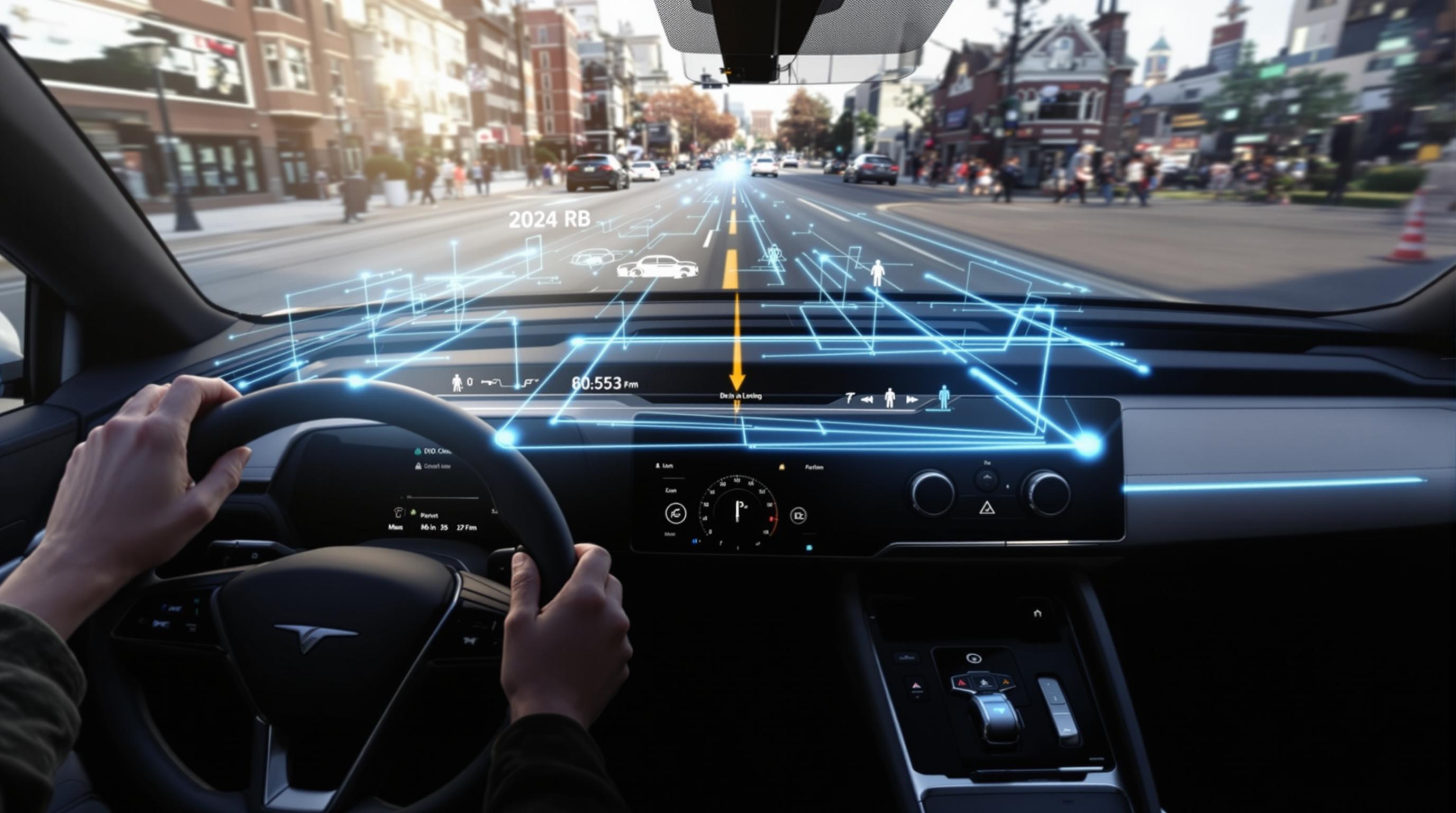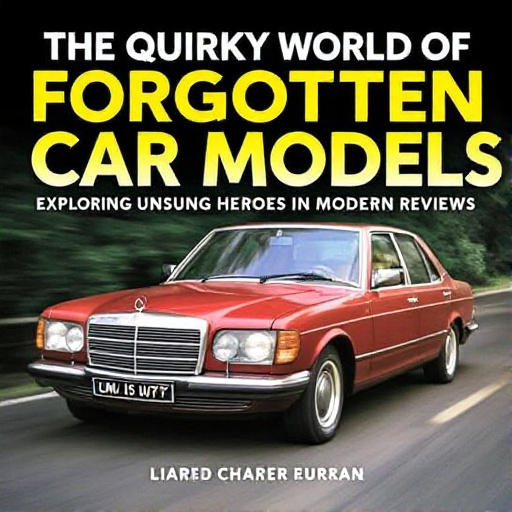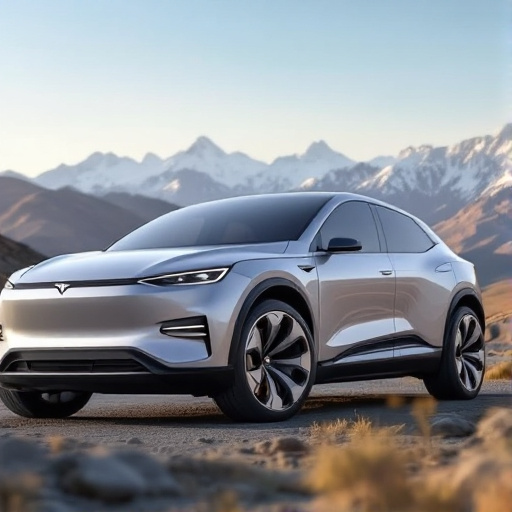Related Articles
- Charged Up! How Electric Vehicles are Reshaping Urban Wildlife Habitats and Biodiversity
- Navigating the Used Car Market: Uncovering the Secrets of 'As-Is' Sales for Savvy Buyers
- The Rise of Electric Car Pop-up Shops: A New Frontier for Urban Retail Experiences
- The Forgotten Art of DIY Car Maintenance: Rediscovering Skills in a Tech-Driven World
- Electric vs. Vintage: The Battle for Enthusiasts' Hearts in the Age of Latest Car Models
- The Rise of the 'Car Review Influencer': How Social Media is Shaping Auto Buying Decisions
Revving Up the Conspiracy: Are Car Reviews Secretly Influencing Auto Industry Trends?
Revving Up the Conspiracy: Are Car Reviews Secretly Influencing Auto Industry Trends?
In an increasingly digital world, car reviews are not just casual critiques; they play a pivotal role in shaping automotive trends. This article explores how these reviews might influence consumer preferences and the auto industry at large, delving into the mechanics, motivations, and outcomes of this intriguing relationship.
Understanding the Influence of Car Reviews
In the vibrant world of automobiles, where every pixel of a new model can spark a frenzy in the marketplace, car reviews wield an extraordinary amount of power. Whether it’s a seemingly simple blog post, a YouTube video, or a detailed feature in an automotive magazine, these reviews can drastically affect consumer opinion and, in turn, automotive sales. A study from the Automotive News indicated that nearly 80% of potential car buyers conduct extensive research online before making a purchase, with reviews playing a crucial role in that decision-making process.
Statistics Speak Volumes
Consider this: vehicles receiving a high review score see an average sales increase of 20% compared to those with lower ratings. These statistics reflect the colossal impact of automotive journalists and influencers on consumer behavior. For example, the 2020 Kia Telluride received accolades from leading auto reviewers, which not only boosted its recognition but also catapulted it to the top of sales charts, with Kia reporting a 300% year-over-year increase for this model.
The Shift in Automotive Marketing
The auto industry has certainly taken notice of the power of reviews. A few years ago, automakers primarily relied on traditional advertising to woo potential customers. Now, they are increasingly investing in digital marketing strategies that include partnerships with auto reviewers and industry bloggers. A report from Statista in 2023 predicts that digital marketing in the auto sector will surpass traditional advertising spend, reflecting a broader industry shift.
The Rise of Influencers
Alongside conventional automotive journalism, the rise of social media influencers has reshaped the landscape of car reviews. Young reviewers with high follower counts often command more attention than established auto magazines. For example, influencers on platforms like Instagram and TikTok have garnered millions of views, often leading to immediate changes in consumer interest and sales metrics. The immediacy and relatability of these influencers resonate profoundly with younger audiences, who are the future of the automotive market.
The Conversational Approach: Let’s Chat About Your Car
Hey there! Have you ever watched a car review and thought, wow, that’s exactly the car I want to own? You're not alone. When you see someone sharing their excitement over that new convertible or eco-friendly SUV, it can spark an idea in your mind: maybe that’s the right choice for you too! It's a relatable experience that connects the reviewer and the potential buyer, making them feel like they’re in the same conversation, even if they are miles apart.
Persuading the Masses
To get a bit persuasive, consider how well-crafted reviews can change perceptions. Think of it this way: if two cars have similar pricing but one has glowing reviews while the other barely gets a nod, which one are you more likely to choose? Yes, the one with the more enticing narrative surrounding it. In essence, a compelling review can create a narrative that positions a car as not just a mode of transportation but a coveted lifestyle choice.
Case Study: The Tesla Effect
Let’s take a deeper look at Tesla, a brand synonymous with innovation and eco-friendliness. Upon its launch, Tesla's Model S was praised extensively in various reviews, emphasizing its high performance and technological advantages. This barrage of positive coverage created a buzz that propelled Tesla into the mainstream automotive market, turning it from an underdog to a heavyweight contender almost overnight. Reports show that by 2021, Tesla made up 79% of all electric vehicle sales in the United States!
The Mechanics of Trust
This brings us to the concept of trust. Reviews matter because consumers inherently trust the opinions of others. Rather than relying solely on corporate advertising, shoppers want to hear from real people about their experiences with a product. The Nielsen Global Trust in Advertising report found that 92% of consumers trust recommendations from friends and family more than any other form of advertising. In the case of car reviews, this parallels with consumers valuing the insights of trusted auto reviewers.
Humor in Auto Reviews
But let’s not forget the fun side of car reviews! Ever stumbled upon a review that made you laugh out loud? Humor can go a long way, engaging audiences and creating memorable impressions. Vehicle reviewers like Doug DeMuro are famous not just for their comprehensive analyses but also for their quirky mannerisms and humorous takes on vehicular oddities. It’s this combination of thoroughness and comedy that keeps viewers coming back for more, generating buzz and influence for whatever car they’re showcasing.
Anecdotal Evidence: The Friend Who Changed My Mind
Allow me to share a quick story from my own life. A few years ago, I was intent on buying a compact sedan. Enter my friend, an automotive enthusiast who casually mentioned a specific hatchback she read about online. The way she described it—the sporty look, impressive fuel efficiency, and rave reviews from trusted sources—completely shifted my perspective. I did my research and, sure enough, those reviews confirmed her claims. I ended up purchasing that hatchback, and I couldn’t be happier!
The Future of Automotive Reviews
But what does the future hold for car reviews? As technology continues to develop, we might see augmented and virtual reality tools integrated into reviews, enabling consumers to experience features in a more immersive environment. Imagine virtually test-driving a car from your living room while being guided by your favorite reviewer—it’s an exciting prospect that could further influence buying decisions!
Final Thoughts: Are We Just Informed Buyers or Pawns in a Game?
Ultimately, we must ask ourselves: are we empowered consumers, or mere pawns in the game played by the auto industry and reviewers? The answer isn't black and white. While reviews provide valuable insights that enhance our buying choices, they've also created a landscape where perception can outweigh reality. It boils down to striking a balance where consumers remain informed while being wary of the hidden agendas that may lurk behind many reviews.
Conclusion: The Road Ahead
In this intricate dance between car reviews and the automotive industry, one thing is clear: the influence is real and formidable. Car reviews are not merely reflections of consumer opinions; they actively shape trends, preferences, and the very fabric of the auto industry. As consumers, staying informed and discerning becomes crucial. Be it a small blog or a viral influencer review—be aware, be engaged, and most importantly, enjoy the ride.





